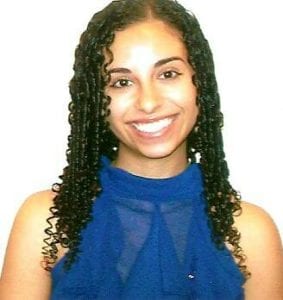Media Contact:
Nalini Padmanabhan
ASHG Communications Manager
301.634.7346
press@ashg.org
For Immediate Release
Friday, October 9, 2015
2:30 pm U.S. Eastern Time (UTC-05:00)
Findings Reported at ASHG 2015 Annual Meeting

BETHESDA, MD – The majority of adolescents in grades 7-12 would prefer to know the results of unanticipated findings found in whole exome sequencing genetic testing, even if the findings are not medically actionable until adulthood, according to survey data presented at the American Society of Human Genetics (ASHG) 2015 Annual Meeting in Baltimore. The survey addressed secondary findings – genetic findings unrelated to the initial indication that prompted the test – gleaned from sequencing the protein-coding regions of a person’s genome.
“Whole exome sequencing in minors can potentially reveal an elevated risk for a condition unrelated to the initial reason they underwent genetic testing, and there may be no medical intervention to mitigate that risk until adulthood,” said Sophia Bous Hufnagel, MD, a pediatric geneticist and first author on the study. “Some people prefer to know about these secondary findings anyway, while others would rather not know,” she said.
Clinical guidelines urge physicians to counsel adult patients through choosing which types of secondary findings, if any, are disclosed to them. For minors, however, the consensus has been to discourage disclosure, except in rare cases.
“Some argue that disclosing such findings to teens would take away their right to decide later, as an adult, what they want to know. Many people also felt that disclosing results to children may cause psychological harm, especially when there are no prevention or treatment options available until adulthood – that you should just let a kid be a kid,” Dr. Hufnagel explained. “Others argue that a truly non-actionable finding does not exist and that knowledge of such results, despite available treatment options, has value and benefit in itself.”
“However, there was limited research into what the teens themselves thought about these types of findings, especially in the context of whole exome sequencing,” she said. To answer this question, Dr. Hufnagel and colleagues at Cincinnati Children’s Hospital Medical Center administered a survey to 282 students aged 12-18 attending three public schools in Cincinnati. The students listened to a short presentation on genetic testing and answered multiple-choice questions about their preferences for disclosure and the reasons behind them.
Eighty-three percent of respondents said they would prefer to know about non-actionable results. Of these, 38 percent cited future planning related to their education, career choice, relationships, and reproductive choices as a primary reason. This was a significantly higher proportion than the survey’s other choices, which included reducing anxiety and gaining information about relatives’ health. Among respondents who said they would elect not to know about non-actionable secondary findings, the most common reason was concern for introducing stress in their family. Slightly more than half (53 percent) of respondents would want to make this decision jointly with their parents, while 19 percent felt they could make the decision on their own.
Interestingly, adolescents’ preferences for disclosure of secondary findings were fairly consistent between boys and girls, across race and ethnicity groups, and across socioeconomic groups. There was a correlation with age, though; 55 percent of 12-year-olds said they would want to receive non-actionable genetic information, compared to 87 percent of those aged 13-18.
“We were surprised by these results,” Dr. Hufnagel said. “We expected to see a more gradual progression between the ages of 12 and 18, not this sharp divide between 12-year-olds and older adolescents.” The researchers plan to further examine this age-based difference and potential factors behind it, such as variable understanding of the test, the dilemma, and its ramifications.
“The bottom line is that disclosure of secondary findings to adolescents is a complex issue that should involve the stakeholder (the teen) as well as their parents or guardians,” Dr. Hufnagel said. “While these decisions should probably be made on a case-by-case basis, it is important to have adolescents’ input when shaping the policies and guidelines that affect them.”
Presentation: Dr. Hufnagel will present her research on Friday, October 9, 2015, from 2:30-2:45 p.m., in Holiday Ballroom 4 of the Hilton Baltimore Hotel.
Press Availability: Dr. Hufnagel will be available to discuss this research with interested media on Thursday, October 8, 2015, from 10:00-11:00 a.m., in the ASHG 2015 Press Office (Room 301).
References: Hufnagel SB et al. (2015 Oct 9). Abstract: Adolescents’ opinions on disclosure of non-actionable secondary findings in whole exome sequencing. Presented at the American Society of Human Genetics 2015 Annual Meeting. Baltimore, Md.
Botkin JR et al. (2015 Jul 2). Points to consider: Ethical, legal, and psychosocial implications of genetic testing in children and adolescents. The American Journal of Human Genetics.
About the American Society of Human Genetics (ASHG)
Founded in 1948, the American Society of Human Genetics is the primary professional membership organization for human genetics specialists worldwide. Its nearly 8,000 members include researchers, academicians, clinicians, laboratory practice professionals, genetic counselors, nurses, and others with an interest in human genetics. The Society serves scientists, health professionals, and the public by providing forums to: (1) share research results through the ASHG Annual Meeting and in The American Journal of Human Genetics; (2) advance genetic research by advocating for research support; (3) educate current and future genetics professionals, health care providers, advocates, policymakers, educators, students, and the public about all aspects of human genetics; and (4) promote genetic services and support responsible social and scientific policies. For more information, visit: http://wptest.ashg.org.
9650 Rockville Pike | Bethesda, MD 20814 | 301.634.7300 | society@ashg.org | www.ashg.org
Connect with ASHG on Twitter (@GeneticsSociety) | Facebook | LinkedIn
